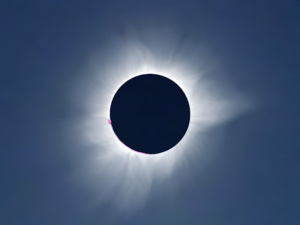2024 Eclipse Safety Guide
On April 8, 2024, a solar eclipse is happening, beyond a SHADOW of a doubt. There are plenty of tips on how to protect your eyes during an eclipse. Some of the advice online is pretty SHADY. At Orleans Family Health Clinic, we think that if you want to enjoy the eclipse safely then you have to PLANET.
The upcoming solar eclipse is a highly anticipated event for astronomy enthusiasts and curious individuals alike. However, it’s important to remember that observing a solar eclipse directly without precautions can be extremely harmful to your eyes. Here are some guidelines to ensure a safe and enjoyable eclipse-watching experience.
- Use Proper Eye Protection:
Only use certified solar eclipse glasses or viewers. Regular sunglasses are not sufficient. - Avoid Counterfeit Glasses:
Purchase glasses from reputable manufacturers to avoid counterfeit ones that may cause eye damage. - Inspect Glasses for Damage:
Check for scratches or damage, and discard any defective glasses. - Follow Usage Guidelines:
Wear glasses properly, align them with your eyes, and avoid looking at the sun for more than a few minutes at a time. - Use Projection Methods:
Create a pinhole projector or use other indirect methods to view the eclipse safely. - Stay Informed:
Refer to reliable sources for timing, duration, and other important information about the eclipse.
Watching a solar eclipse is an awe-inspiring experience, but remember that your eye safety should always come first. By using proper protective gear, inspecting your glasses, and following the recommended guidelines, you can enjoy observing this extraordinary celestial event without compromising your vision. Embrace the beauty of the solar eclipse while ensuring your eyes remain safe and healthy.



